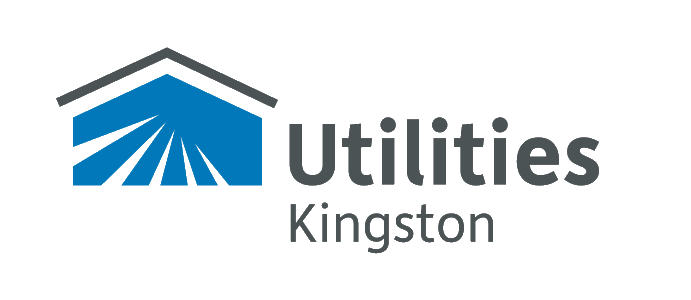2019 Achievements
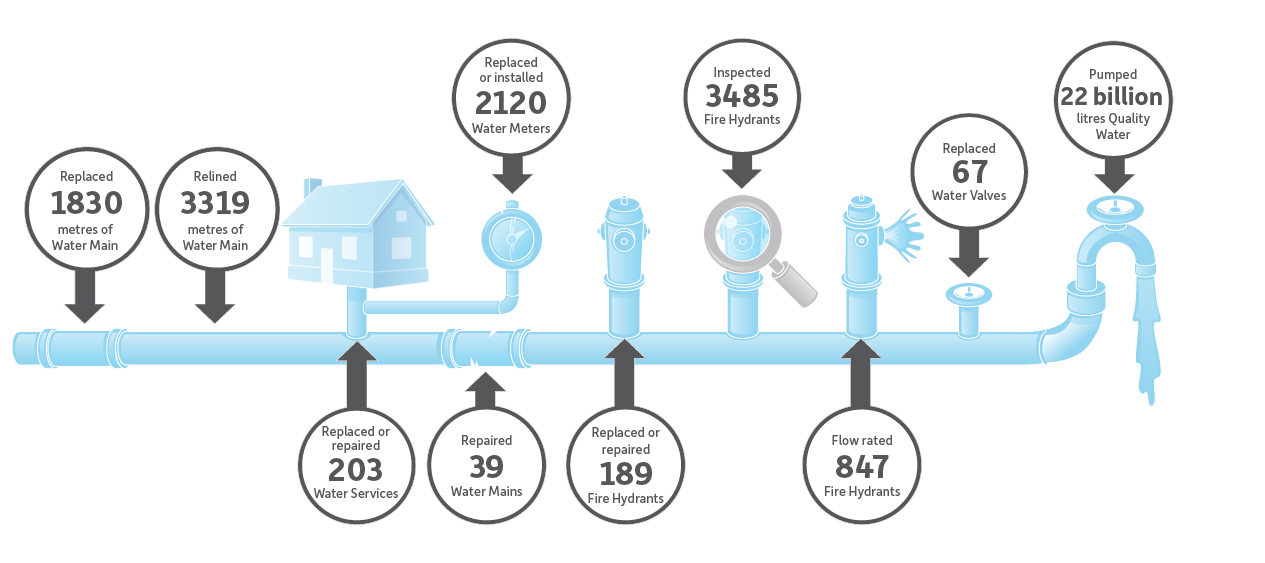 Click to enlarge
Click to enlarge
What's the context?
We've provided data on our achievements in 2019. If you're looking for additional context on how much overall infrastructure we maintain, check out our overview infographics.
Accurate, Reliable Water Meters
In 2019, we continued to improve asset management of water meters as we replaced 1,720 out of approximately 39,000 water meters and installed 400 water meters into new homes or businesses.
This program will help us keep meters up-to-date to ensure accurate, reliable metering of the water consumed by our customers.
Ensuring Reliable Water Distribution and Fire Protection
3,485
Fire Hydrants Inspected
Out of 3,547
847
Fire Hydrants
Flow Rated
In 2019, there was a focus on water distribution system maintenance that included valve operation and maintenance, hydrant inspection and maintenance, and water service renewal.
To help support fire protection, a particular focus was placed on inspecting and flow rating fire hydrants. We inspected all fire hydrants, except those that were inaccessible, for example, due to construction.
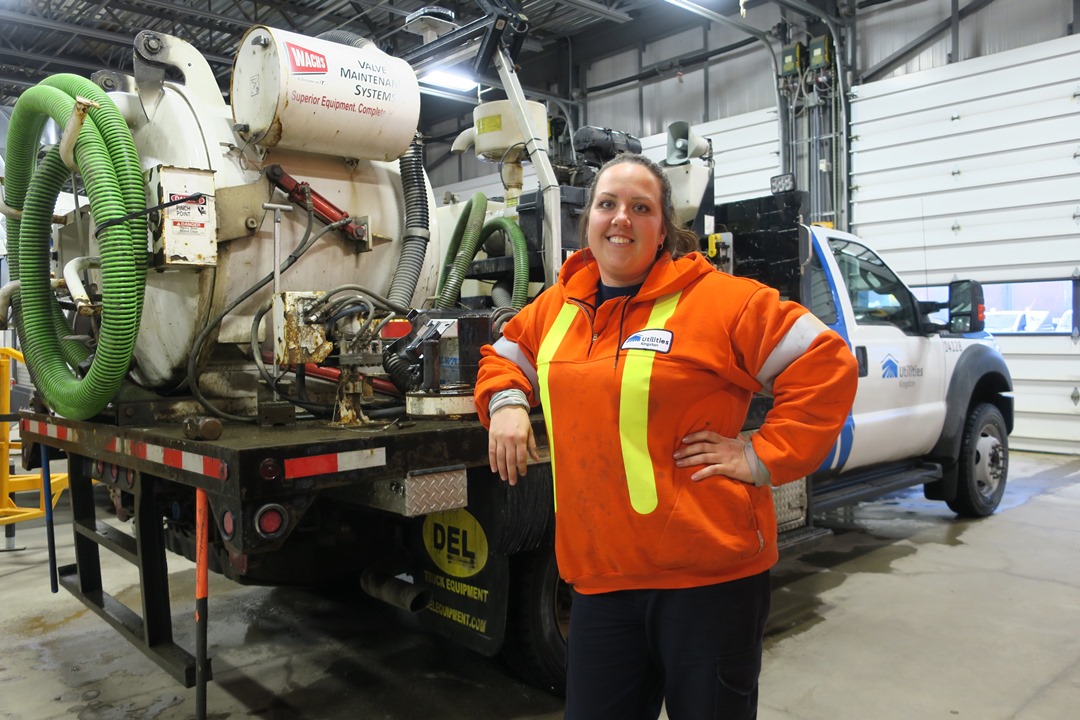
Infrastructure Upgrades
Watermain Extension Complete
The Cataraqui Woods Drive watermain extension from Anderson to Centennial is complete. Crews have installed a 600 metre, large-diameter trunk watermain, which was needed to support growth and development in the area. The watermain is now in service, supplying water to the area north of Princess Street and east of Centennial Drive. It will help ensure a reliable water supply to the area, including for fire protection.

Improving Operating Efficiency: Water Loss Reduction
Ageing infrastructure, unauthorized water use and meter accuracy all contribute to cracks and leaks in the water system. The problem isn’t unique to Kingston. Many municipalities in North America are faced with the same issue.
Utilities Kingston is intent on finding and fixing water leaks in the municipal system. This effort helps provide a safe and reliable supply of drinking water, improve operating efficiency, reduce treatment costs, conserve water and energy, and ensure responsible infrastructure management for customers.
Recent highlights included a focus on replacing leaking water service laterals, an active leak detection program, and improving data through metering.
A highlight in 2019: the work to replace approximately 50 water services in the Lawrence Park subdivision was completed. Crews replaced 45-year-old municipal water service laterals on Aylmer and Clark to improve operating efficiency by reducing system water loss.
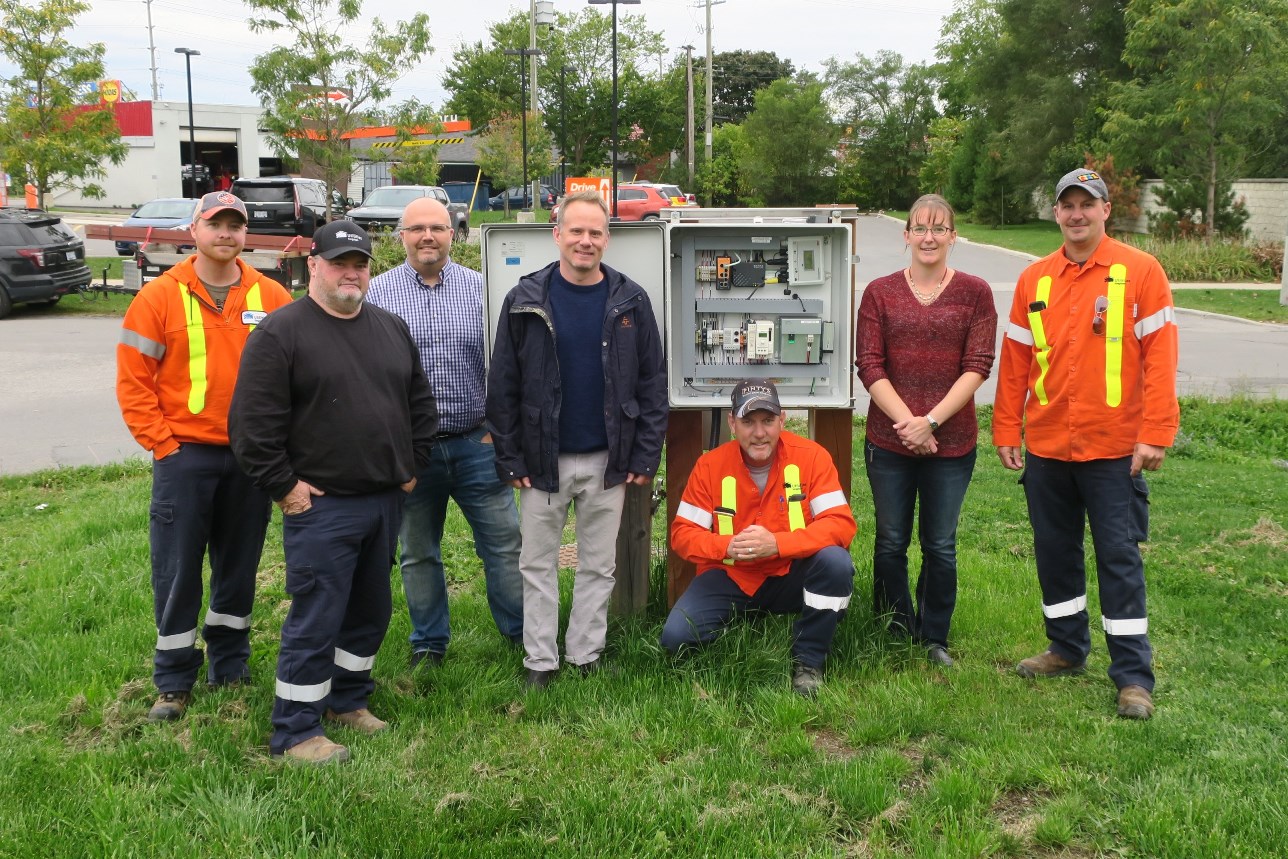
Regulation and Legislation
Annual Reports on Drinking Water Quality
Utilities Kingston released the 2019 annual reports on drinking water quality in accordance with Section 11 of Ontario Regulation 170/03. Annual reports outline water quality status at the three water treatment facilities and the water distribution systems operated by Utilities Kingston.
In 2019, we received a 100 per cent rating from the Ministry of Environment, Conservation and Parks on our drinking water inspection, which confirms we are meeting the water quality standards.
Our activities to ensure water quality included the following:
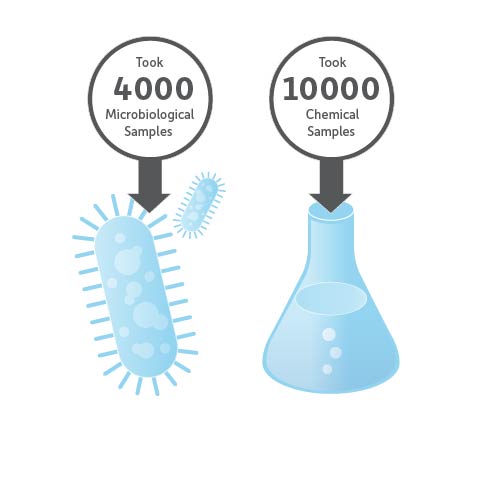
Cross Connection Control
As of 2019, Utilities Kingston monitors the annual testing and maintenance of nearly 4,000 approved backflow prevention devices, up from 3,500 devices in 2018. These devices are mostly for premises isolation, and some internal protection and residential irrigation. In 2019, 432 new devices were installed in industrial, commercial, institutional (ICI) and multi-residential buildings.
The program was first implemented in Kingston in 2012. Since then, over half of the approximately 4,000 ICI facilities identified have put premises isolation backflow prevention devices in place, are working on installation, or have a survey pending. We initially focused on the most severe-hazard connections like hospitals, car washes, morgues and dental offices. These facilities now all have premises isolation in place and we continue to work with moderate-hazard connections such as restaurants, stores, offices and multi-residential buildings.
Background
In accordance with the Water By-law No. 2006-122 Part 3 - Cross Connections/Backflow Prevention, the Utilities Kingston Cross Connection Control Program is in effect. It addresses actual or potential connections between the City’s water infrastructure and a source of pollution or contamination that could change the drinking water supply quality.
Through this program, we identify moderate- and severe-hazard cross connections, where potential contamination of potable water may occur, and we enforce installation and yearly testing of backflow prevention devices. When properly installed, cross connection control devices ensure that water will never flow from the customer’s facilities into the distribution system.
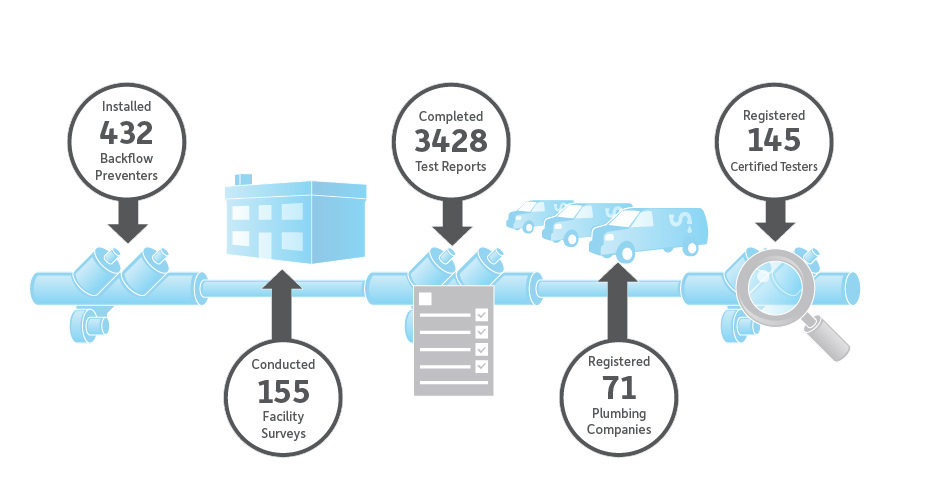 Click to enlarge
Click to enlarge
79
Homes and Businesses
had their Drinking Water
Tested for Lead
This exceeds our regulated requirement
of 20 tests as we responded to
large number of customer requests.
Community Lead Testing Volunteers
Help safeguard our water, from source to tap
Protecting our drinking water is a shared responsibility. Thank you to our customers who volunteer in the community lead testing program and help keep drinking water safe and clean.
Under the Provincial Regulation 170/03 (Safe Drinking Water Act), the Ministry of the Environment and Climate Change requires owners of municipal residential drinking water systems to conduct lead testing of water taken from both plumbing (pipes inside the home or building) and distribution locations (pipes leading to the home or building). The municipality has been regulated to conduct lead testing over the past decade. During this time, Utilities Kingston has typically not found any issues with elevated lead levels in drinking water.
Full Scope Accreditation
In 2019, the required internal auditing process was completed with no non-conformances identified. Additionally, an external desktop audit was completed by an accredited third party with no non-conformances identified.
In 2011, we received full scope accreditation for a successful Drinking Water Quality Management System (DWQMS). The issuance of the certificates of accreditation is the final step in meeting the initial requirements of the Safe Drinking Water Act. The accreditation process is ongoing and requires yearly audits that demonstrate continuous diligence in continuous improvement in water treatment and supply.
This accreditation demonstrates that Kingston’s water treatment and distribution systems meet the requirements set out in provincial quality water management legislation. It is a testament to our commitment to water quality and the provision of safe and reliable water to our customers.
Annual Inspections
In 2019, the Ministry of the Environment and Climate Change completed annual inspections of all the water treatment systems operated by Utilities Kingston. For 2019, we received a 100 per cent rating for meeting the operational, and compliance requirements under Ontario’s drinking water regulations.
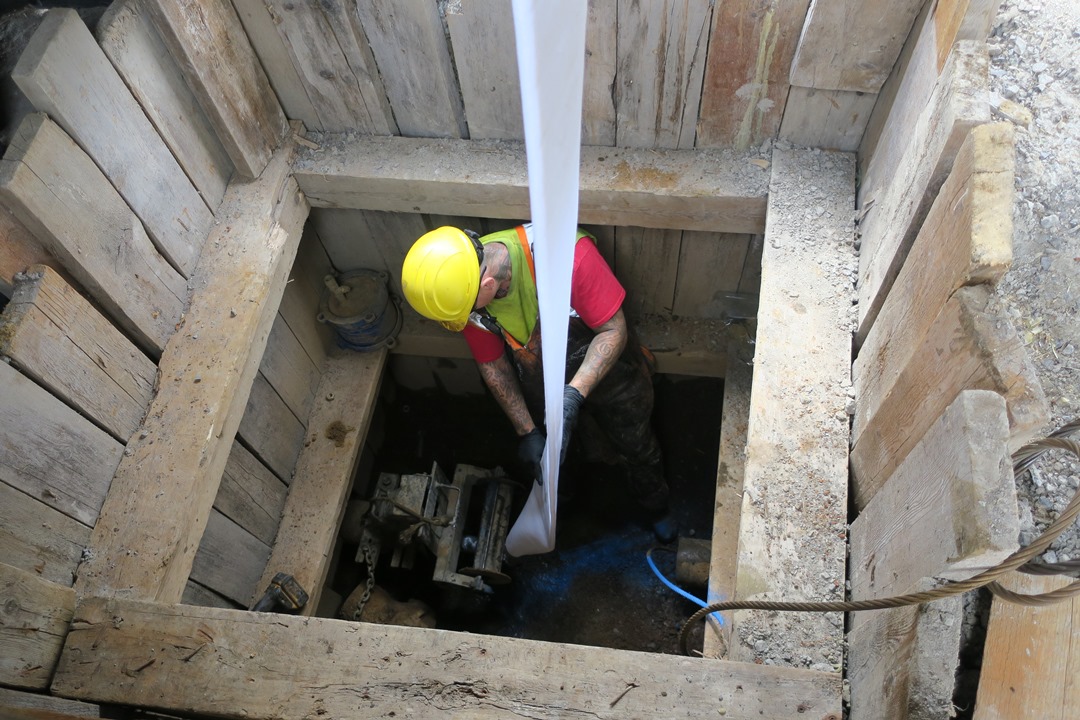
Water by the Numbers
22.3B
Total Water
Pumped (L)
0.45B from
previous year
39K
Homes and Businesses Served
374 from
previous year
4,000
Microbiological
Samples
120 of regulated requirement
10K
Chemical
Samples
200 of regulated requirement
Financials
Check out our webpage on conservation to learn about our customers’ accomplishments in saving water.
